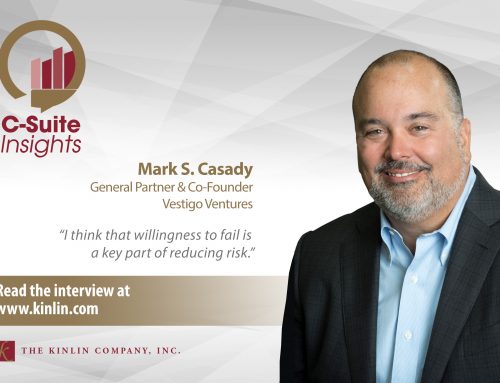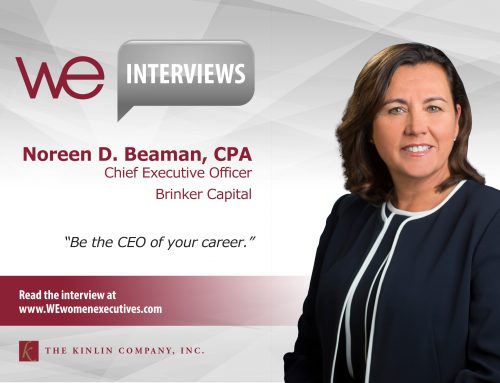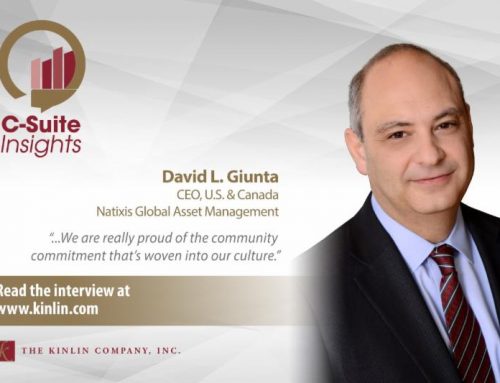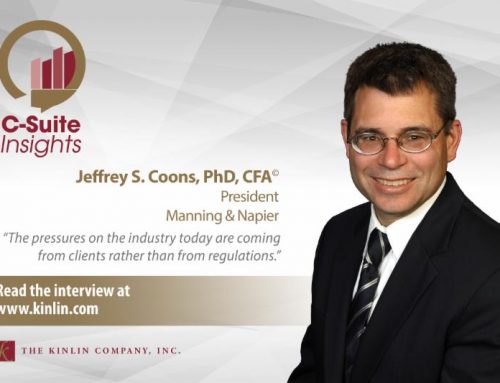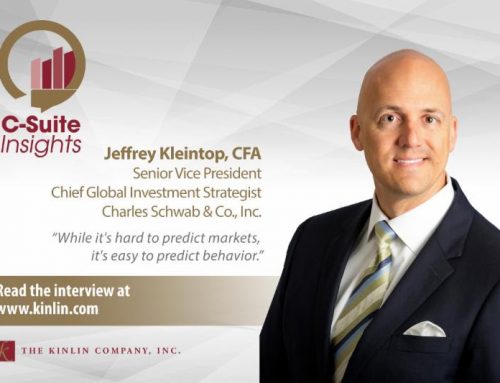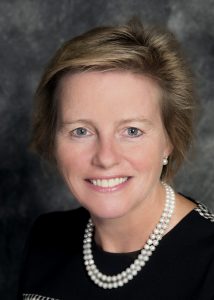 Deborah Hazell
Deborah Hazell
Regional CEO, Global Asset Management, Americas
As CEO of HSBC Global Asset Management in the U.S. and Regional CEO of HSBC Global Asset Management in the Americas, Deborah Hazell has wide-ranging responsibilities. In addition to managing business in the U.S., Hazell also oversees businesses across the region. Her staff includes 250 plus employees scattered across the U.S., Canada, Mexico, and Argentina, with assets under management of approximately $90 billion in the region.
I recently sat down with Debbie to get her read on the financial landscape and learn a bit more about her professional journey.
Change is in the air
I began my conversation with Debbie by jumping right to the heart of things. Looking at the global economy, what do you view as the major challenges and opportunities moving forward?
“I’d say we’re in a period of critical change and instability as the dynamics between developed and developing countries are shifting. The rise of Asia is one example of a major opportunity, and a challenge, for a lot of businesses. Think of the Pearl River Delta, the Silicon Valley of China, which represents a point of innovation and growth in the region. HSBC is fortunate because our roots are in Asia and we have a large network there, so we can help many investors navigate this rapid expansion in Asia.
“If you compare GDP growth in the developing world versus growth in the developed world, growth is more than double the 2% rate we see in developed markets. Developing countries are catching up fast! Clearly, there are political challenges in some developing countries, but then again, we have political challenges in developed countries as well. There is also substantial growth in private wealth in the developing world. In contrast, we’re going to see wealth in developed countries start to diminish as boomers draw down their wealth in retirement. As we evaluate these themes and the disparity of growth rates and wealth throughout the world, we think connecting investors and opportunities in the developed and developing world is going to be more important than ever.
“Another major global challenge is climate change and the role of the responsible investor. ESG issues are clearly linked to a firm’s fundamentals and longer-term performance, so incorporating these factors – and the risks – into the investment equation and adequately pricing them is becoming increasingly relevant.”
Are you employing any special initiatives to respond to these opportunities?
“Our whole business model is organized around connecting the developed and developing world and looking for opportunities in corners of the globe that local investors may not typically focus on.
“There’s also a big focus on low cost, as costs are eating away at the returns that investors are getting. If you look at historical data, average returns are lower and lower every decade, and the high returns of the past are less achievable, which is a challenge not just for retail investors, but for anyone investing for retirement, including major pension funds. So, the focus on cost is going to continue. We need to continue to look for efficiencies and other measures to take the cost out of capabilities and pass those savings on to clients. We need to work out how to do more for less.
“With regard to climate change or more generally sustainable investing, this is another key initiative for us, as it is for many institutions and individual investors. We are highlighting all the more how we are integrating ESG insights and analysis into our investment processes, but also launching new products such as our lower carbon series.
“Finally, for retail, one of the things we think about is helping people help themselves, so we have a big focus on asset allocation products. People are responsible for their own investments, yet often lack expertise, and it’s easy to make missteps when you try and invest on your own. We try to present the solutions so that individuals can invest their money and sleep at night.”
Index funds are here to stay
Debbie’s comment offered a great segue into my next question. Looking at key trends in asset management, index funds are becoming more popular, as is the demand for multi-asset solutions. Any thoughts?
“I think that index funds are definitely here to stay. Passive funds are the ultimate scale business. There are two major scale businesses: liquidity and index products. With respect to indexing, investors need to be careful that they’re not throwing away opportunity in favor of a focus on cost. In more efficient markets, index strategies make a lot of sense, but there are still a lot of inefficient markets — emerging markets, global credit, frontier markets, etc. I think there are still a lot of opportunities for selective active management as clients evaluate cost versus opportunity with regard to less efficient markets.”
The need to be nimble is pressing
Since Debbie had enumerated the trending opportunities in asset management as she sees them, I was equally eager to learn what issues she viewed as challenging. Going into 2018, what are you focused on, I asked. What keeps you up at night?
“Our ability to keep up with technological change and the use of AI to systematize the industry more. We use data for advancements as well as to better understand our clients and make things easier for them. As an industry, we have access to enormous amounts of data, but collecting it, evaluating it and using it are another matter. So, that’s what keeps me up at night – I know what we need to do, it’s just a question of how to do it.
“The other issue that occupies my mind is the task of managing an asset management business in this world of changing regulations. The pace of regulatory change is challenging and there’s also the extra-jurisdictional aspect of regulation, in terms of the U.S. regulations reaching overseas and overseas reaching the U.S. I’m not saying it’s a good thing or a bad thing, it’s just something that takes enormous amounts of mind space and time to ensure that we’re fully compliant while doing the best for our clients. Take liquidity, for example. In the U.S. we went through money market reform late last year which transformed the industry, and now we’re moving toward similar reform in Europe as well. Having learned from the U.S. experience, we can now anticipate the impact that these reforms may have and guide our clients appropriately.”
Role models are critical
With a sense of Debbie’s professional concerns in hand, I wanted to shift gears and talk with her about being a woman in the asset management business. You’ve been in this sector for some time now, and I’m sure there have been many occasions when you’ve been the only woman in the room. Why do you think you’ve realized such success?
“Yes, I’ve been in the industry for over three decades, but I have to say that, as I was living this, I wasn’t really conscious of specific attributes or decisions that moved me along. It’s only when I look back that I recognize the catalytic moments and events. It may sound corny, but I was fortunate to have people that believed in me all along the way, so I didn’t have to fight as hard as many women do to be noticed. I’ve also worked for a good number of women, so it never occurred to me that success wasn’t within my reach.
“When I first started in the industry in the mid ‘80s, the head of asset management where I worked was a woman. Therefore, it was the most normal thing in the world for me to be a woman moving up to asset management. When I moved to the second place in my career, there was a woman number two in my local asset management office, so it didn’t occur to me that I couldn’t achieve that. That said, I still did what a lot of women do – I put my head down and worked hard to be better than everybody else so I couldn’t be faulted. I also had the good fortune to work with people who saw what I could be perhaps before I did. I landed my first CEO role because my colleagues put me forward for the position. They said, ‘You’re the best person for the job. We want you to step up and take this position,’ so I did.
“The fact that I had role models was so important. I don’t think one realizes how important a role model is until you’re without one. For me, my advancement was the most natural thing in the world, but if I hadn’t worked for those women, my mindset might have been completely different. It’s only in the last several years that I’ve really started reflecting on my role as a female professional in asset management, whereas previously I simply viewed myself as an asset management professional in a genderless way. Now, I see the weight of the responsibility that I have, to be that role model and to make sure that I reach out up and down the organization, inside and out, to show people it doesn’t matter whether they’re male or female, a minority or not, they can succeed.”
Gender intelligence is key
Debbie’s comments led me naturally into my next question. I know that HSBC has a very active women’s network and mentoring initiative. Can you tell me a bit about that?
“Sure, it’s called Balance, because it’s a gender network and it’s for everybody. Our goal is to foster a gender-intelligent organization, so it’s not just mentoring and it’s not just women. We have a lot of initiatives focused on encouraging inclusiveness and creating an environment that is supportive of a gender-balanced workforce. We see ourselves in partnership with the bank, so it’s an employee resource group but also a business resource group. We’re here advocating for the employees’ development within the bank, collaborating closely with Human Resources and focusing on things that are meaningful such as attraction, promotion, and retention.
“We consider questions such as ‘How do we get a more balanced workforce by hiring people in? How do we make sure that women are promoted at an equal pace with men?’ It’s got to be a meritocracy – it’s not about pushing women before they’re ready, but rather looking at promotions in such a way that you identify differences between men and women and value those differences. We emphasize judging people by their capabilities and, of course, we examine the real roadblocks for women. On the retention side, we think about how to create an inclusive environment so that women like working here, are recognized for their achievements and elect to stay.
“As the sponsor of Balance here in the U.S., I see my role as influencer, agitator and communicator, in collaboration with my co-chairs. We don’t shy away from difficult issues, as those are the ones that generally need to be addressed. We also do our best to counter the myths by addressing them with facts where we can as well as drive initiatives that we think will make a difference to employees and to the business.”
Belief in yourself is important
I closed my interview with Debbie with one of my most popular questions. What advice would you give to someone looking to move up in her career?
- Take that leap. Look at all the possibilities around you, keep an open mind as to what the next step might be, and believe in yourself enough to put yourself forward. One of the challenges that women face is that not everyone sees their potential or even their performance because they present themselves in a quieter way. Knowing this, you must believe in yourself enough to take that leap, particularly when you don’t have that other person acknowledging your strengths or potential.
- Don’t expect to be noticed. I think that as leaders, we have a responsibility to look into our workforce and notice everyone’s contributions, but sadly this is where women often get left behind because not every leader does that. We are used to operating in a male world which tends to be more vocal, whereas women are generally less vocal about the contributions they’re making. The change that needs to happen is for leaders to recognize this. We are focused on telling women how to change themselves, but we need to focus on those in a position to make a difference and get managers to see how their perspective has been crafted for a male-oriented environment. That is where the change needs to happen.

